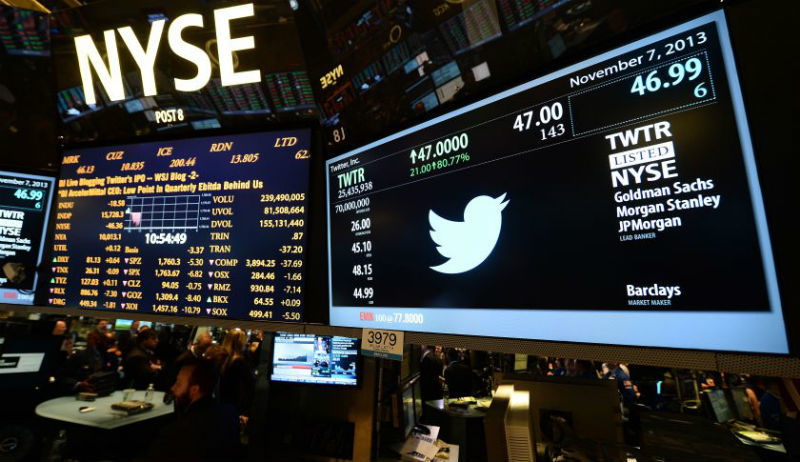Social networks, finance and robots: How a trader earned $ 2.4 million in 28 minutes with one tweet

A few years ago, a London hedge fund launched a new project called the Twitter Fund. A special computer system read 100 million tweets per week and determined on their basis the situation with current economic trends.
If the overall tone of the message was positive, the fund bought shares, and if negative, then the likelihood of a fall in the stock market increased and you should think about selling shares.
The idea was terrible - the fund warmed up for two years. However, perhaps the idea itself was not so bad - in the spring of 2015, one of the traders managed to earn more than $ 2.4 million in just 28 minutes using the microblogging service as a news source.
The power of tweet
It was about negotiations between Intel and Altera, a chip company. Information about them leaked to the press, but there was no official confirmation of this information when an unnamed trader bought options for about 300 thousand shares of Altera. These options have a strike price $ 36, and the share price at that time was $ 34. Thus, these options belonged to the so-called “ out of money ” options - everyone who would like to exercise them would have to pay $ 36 per share, worth $ 34. The transaction was completed in March, and the expiration date for the options was already in mid-April, so they did not cost very much - $ 0.35 for each, the total purchase amount was about $ 110 thousand.
20 seconds after the completion of this transaction, trading in Altera shares was suspended. Reason - Wall Street Journal reporter Dana Mattiolly tweeted with a link to the Dow Jones news service that Intel and Altera were indeed in talks to merge:
Other traders doubtedin that their colleague could have time to complete a transaction on the purchase of options in 20 seconds - according to their calculations, this would take about a minute. A more plausible explanation is that the computer committed the transaction. In the option market, high-frequency robotic trading gained distribution later than in other sections of stock exchanges, but now robots rule the ball here too. So there is nothing surprising in the fact that the computer could overtake competitors using Twitter feed as an information source.
Note: Subsequently, Reuters published information that the trader bought the options before the publication of a tweet to the Wall Street Journal. After this incident, negotiations between Intel and Altera were suspended. As a result, the announcement Altera was bought for $ 16.7 billion in the summer of 2015.
Is this generally legal?
This incident sparked another wave of discussions about whether high-frequency trading is an honest way to trade, or should it be equated with insider trading? In the case of insider trading, traders gain an advantage over competitors by accessing information unknown to other players - this is obviously dishonest. But on the other hand, most market players do not have access to ultrafast computers and software that can complete a transaction on the purchase of options for 300 thousand shares in less than a minute.
In a conversation with Fortune, MKM Partners derivatives strategist Jim Struggler disagrees with this point of view. The expert says that HFT can be a problem if robots use data from sources inaccessible to other investors, or access this data earlier. However, if the transaction is based on publicly available information, for example, from a social media feed, then everything is honest here.
Not only large hedge funds, but also individual traders at home can create an ultra-fast algorithm that analyzes data from a variety of sources (moreover, online trading is becoming a popular hobby for tech-savvy people).
At the same time, the existing algorithms are far from ideal, therefore it is impossible to say that the system is working incorrectly, Straggler is sure.
“People who want to sell our company analytical computer systems to make decisions about transactions based on news or tweets are constantly coming to us. We always refuse them - one correctly predicted transaction in such systems now accounts for ten errors. ”
Teaser Image: Emmanuel Dunand - AFP / Getty Images
